Hotels & Accommodations
Mediterranean Design Hotels To Visit In August And Beyond
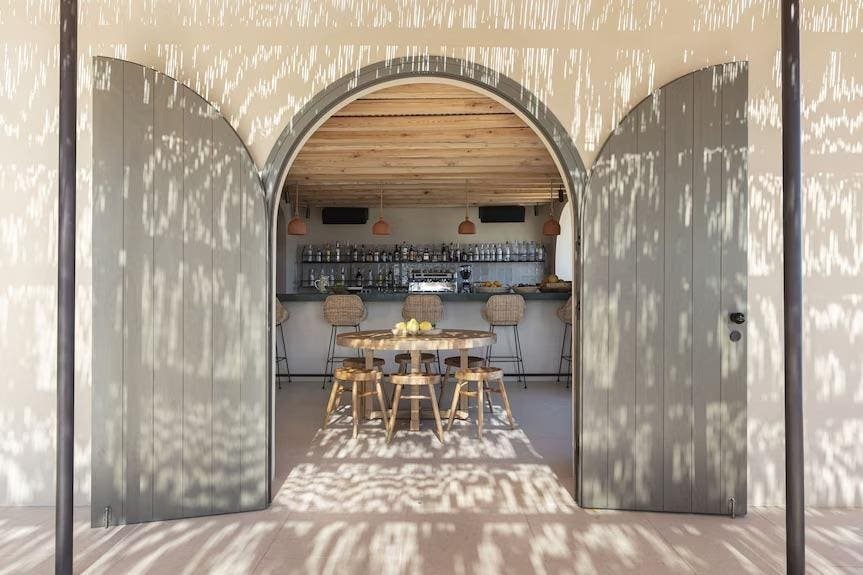
NOS Hotel Sifnos
NOS Hotel Sifnos
As the crowds slowly retreat from the beaches and the air begins to soften, late summer in the Mediterranean becomes something entirely different. Quieter, clearer, and more intimate, it’s the season for those who prefer long, barefoot afternoons and unhurried dinners under the stars. The hotels below reflect that energy. Each one is built with intention, designed to feel like a place you return to, not just pass through.
Here’s where to go when you want summer to last a little longer.
Situated on a private peninsula near Agios Nikolaos, this adults-only and eco-conscious retreat focuses on immersive calm. The design incorporates stone, wood, and local greenery, with an atmosphere that’s best described as quietly elevated. There’s a deep emphasis on wellness, both through their own longevity hub and the overall rhythm of the place.
Minos Palace Resort Crete
Minos Palace Resort
By early September, Crete is still warm, but the intensity eases. The crowds thin, and places like Minos Palace come into their own. It’s a destination for travelers who don’t need to be entertained, just taken care of.
Built directly into the red cliffs of the Côte d’Azur, this modernist hotel focuses on elemental pleasures. Saltwater pools, natural rock terraces, and interiors in sun-washed ochre and white create a kind of 1960s Riviera dream. There’s no DJ, no curated playlist, just long lunches, sea swims, and timeless light.
Les Roches Rouges Hotel Beach & Pool
Les Roches Rouges
By late summer, the South of France returns to a more authentic rhythm. Les Roches Rouges is made for that pace, when the only thing left to do is open a bottle of Bandol rosé and watch the tide come in.
Just outside the buzz of Naoussa sits Summer Senses, a serene hillside retreat with wide sea views, three pools, and spacious suites that feel built for slow mornings. The design stays true to Cycladic simplicity, but the real luxury lies in the mood: calm, grown-up, and completely unforced.
Sunrise at Summer Senses Resort Paros
Summer Senses Resort Paros
While most of Paros shifts into high gear in August, this spot holds a steady pace. It’s close enough to reach the island’s best restaurants and beaches in minutes, but far enough to feel like you’re on your own schedule. As the season stretches into September, the balance between peace and proximity becomes even more appealing.
On a quiet peninsula outside Bodrum, this resort blends serious comfort with a relaxed coastal rhythm. The private beach, infinity pools, and sprawling spa invite you to unplug without ever feeling isolated. Rooms, suites and villas open onto terraces where the view of the Aegean feels like part of the architecture.
Mandarin Oriental Bodrum
Mandarin Oriental
By late August, the coast here is still sun-drenched, but the mood shifts. The party energy fades and Bodrum returns to something more genuine. Mandarin Oriental captures that transition perfectly. You’re surrounded by nature, but everything is effortless, from breakfast in the olive groves to an evening hammam treatment that erases any sense of urgency.
Newly opened on one of the Cyclades’ most rugged islands, Gundari is carved into the cliffs with 27 limestone suites and villas, each with private pools and panoramic views. It feels both elemental and luxurious, the kind of place where you arrive and instantly lower your voice.
Gundari’s Infinity Pool at Sunset
Gundari
Folegandros has long been a quiet alternative to its more photographed neighbors, and late summer is the island at its best. The air is still warm, but the silence deepens. With menus curated by Michelin-starred chef Lefteris Lazarou and a swim-up bar that feels almost like a mirage, Gundari is where design meets total detachment.
There’s a simplicity to NOS that feels completely aligned with the island around it. Built of natural stone and wood, the hotel overlooks a sheltered bay near Faros. Rooms are minimal in the right way, grounded by hand-thrown ceramics and open-air showers that make the most of the light.
NOS Hotel Sifnos
NOS Hotel Sifnos
Sifnos has always attracted a different kind of traveler, and in late summer the island slows into itself. The tavernas feel more local again, and the beaches stretch out with fewer footprints. NOS gives you that experience in real time, whether you’re returning from a pottery village or sipping a glass of chilled Assyrtiko by the pool.
Tucked between Santa Gertrudis and San Rafael, this new opening offers a version of Ibiza few visitors ever see. With just 14 rooms and villas set among olive trees and regenerative gardens, the Farmhouse feels more like an artists’ residency than a hotel. There’s sunrise yoga, community dinners, and quiet spaces for reflection or collaboration.
Soho Farm House Ibiza
Soho Farm House Ibiza
As the island shifts from peak season into its calmer weeks, this is exactly the kind of Ibiza worth experiencing. One where the energy comes from nature, food, and conversation, not speakers or schedules.
Set just above Mykonos Town, these suites (as part of Belvedere Hotel Mykonos) offer a quieter perspective on the island without sacrificing access to it. Interiors are sleek and airy, filled with soft Cycladic light, and some come with private plunge pools or terraces overlooking the Aegean.
Belvedere Hotel Mykonos Hilltop Suites
Belvedere Hotel Mykonos
What makes it special isn’t just the design, but the ease of dipping in and out of the scene. You can have a slow breakfast in silence overlooking town, a spa treatment at the Six Senses Spa or a romantic sunset dinner at Matsuhisa (both located at main Belvedere Hotel), then be at a beach club or cocktail bar in ten minutes. Late summer is the best time to be here. Mykonos is still warm and lively, but the intensity has lifted, and that makes the hilltop location feel even more like a smart choice.
Blended into the raw beauty of the Akamas Peninsula, AYA is Cyprus’s most thoughtful new opening. The design is stripped back and grounded in nature, with limestone walls, native gardens, and 48 suites that face the sea with nothing in the way. Interiors are eco-conscious, minimal but warm, blending natural textures with soft light and open space. The spa focuses on Cypriot herbs and rituals, with treatments that feel intuitive rather than clinical.
The new Aya Resort in Cyprus
Aya Resort
AYA is built for a slower rhythm. Days start with herbal tea on a sun-drenched terrace, followed by saltwater swims or walks along the cliffs. At night, mezze is served by candlelight, and the sound of the sea replaces the usual soundtrack. It’s not a place for show. It’s a place to return to yourself.
Located on the southern coast of Sardinia, this adults-only Relais & Châteaux property is a masterclass in understatement. There are no flashy design statements here, just classic Mediterranean architecture, curated calm, and immaculate gardens leading to a private beach. The service is quiet and precise, the rooms designed for rest.
La Villa Del Re, Sardinia
©Francesca_Anichini_Studio
Sardinia in September offers some of the best weather in the region with a fraction of its high season tourism. This is the moment La Villa del Re was made for.
A new entry to the Relais & Châteaux family, Borgo Santandrea sits high above the Amalfi Coast with views that could double as oil paintings. Every room is unique, dressed in custom tiles and mid-century Italian design. An elevator carved into the cliff connects the hotel to its private beach, one of the few on this stretch of coast.
The Amalfi Coast is still warm in September, but the cruise ships start to clear out, and the beauty becomes easier to absorb. This is the refined, post-summer version of the destination — still cinematic, but finally breathable.
Borgo Santandrea in Amalfi
Borgo Santandrea
Summer starts its final chapter. The light changes. The noise softens. And with the right hotel, the season lingers a little longer than it should.
Hotels & Accommodations
US restricts staff from visiting Karachi hotels over security threat
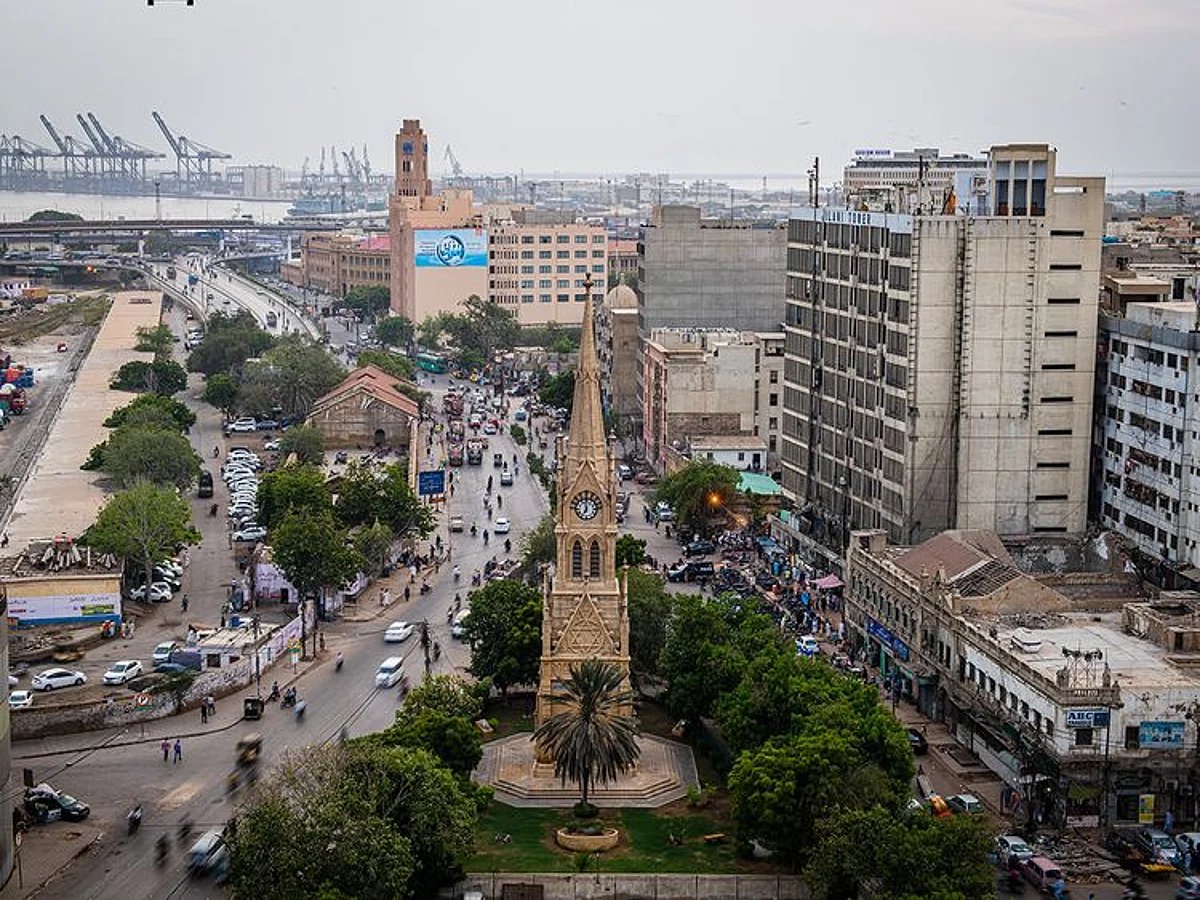
The United States has temporarily restricted its government personnel from visiting upscale hotels in Karachi, Pakistan, following a reported threat targeting these establishments. The move was confirmed in a security alert issued Friday by the US State Department.
Hotels & Accommodations
Park Hotels & Resorts Embraces Strategic Capital Management To Navigate Market Challenges And Drive Growth
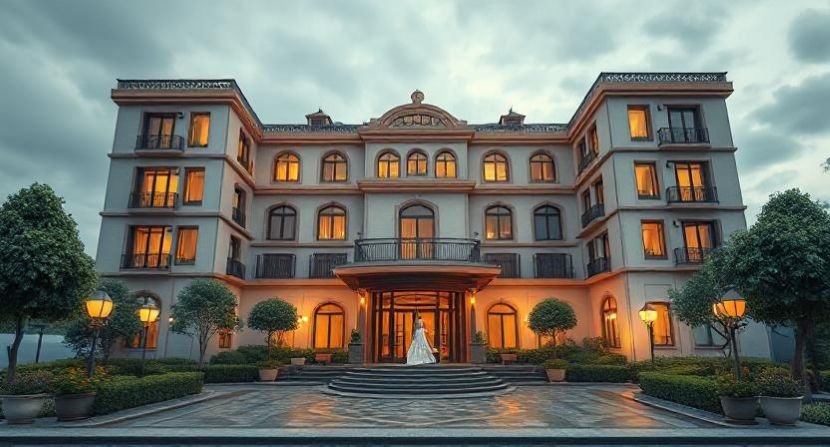
Sunday, August 3, 2025
Amid labor shortages, inflationary pressures, as well as evolving consumer preferences, Park Hotels & Resorts has invested in disciplined capital management. This year, the company’s asset rationalization focus and reallocation of capital has placed it well for both long-term value creation and short-term challenges.
From an investor’s standpoint, the company’s approach invites two critical considerations: first, whether its focus on value-add refurbishments and fine-tuning the asset mix can generate durable, above-average returns; and second, what unique variables set Park apart in an environment where rivals are increasingly squeezed by narrowing spreads.
Focusing Capital On High-Impact Growth
Park’s 2025 strategy is rooted in divesting non-core assets to fund more valuable projects. The 80 Million USD sale of the Hyatt Centric Fisherman’s Wharf in San Francisco, achieved with a remarkable 64x 2024 EBITDA multiple, exemplifies this approach.
This sale aligns with the company’s broader target of disposing of 300–400 Million USD in assets during 2025. If achieved, this could reduce net debt of 3.7 Billion USD by a significant margin, freeing up funds for reinvestment in high-potential properties.
In 2024, Park sold three hotels for 76 Million USD, achieving a trailing EBITDA multiple of 12.2x, including capital expenditures. The proceeds from these sales are being reinvested into major renovations at select properties. For example, the Royal Palm South Beach Miami is undergoing a 103 Million USD renovation to modernize 393 rooms and add 11 new ones.
While this project will impact Hotel Adjusted EBITDA by 17 Million USD in 2025, management anticipates a post-reopening return of 15–20% by 2026. Similar investments are planned for properties in Hawaii and New Orleans, aiming to capitalize on markets that are still recovering.
Strengthening The Balance Sheet And Rewarding Shareholders
Park’s capital reallocation strategy is focused on maintaining a balanced, disciplined approach to debt and liquidity. As of mid-2025, the company reported 1.3 Billion USD in liquidity, including a 950 Million USD revolving credit facility.
This flexibility provides the company with the ability to meet near-term obligations and prepare for the refinancing of a 1.3 Billion USD mortgage on its Hilton Hawaiian Village Waikiki Beach Resort in 2026.
Park’s commitment to shareholder value is evident in its repurchase of over 15% of its outstanding shares since 2022. In Q4 2024 alone, the company spent 26 Million USD on buybacks. Additionally, its quarterly dividend of 0.25 USD per share (yielding a 9% annualized return as of July 2025) further emphasizes its focus on returning capital to shareholders.
This combination of deleveraging and returning value positions Park as a growth and income hybrid in an industry where many peers prioritize one over the other.
Premium Assets In Gateway Cities
Park has carved out a unique position by focusing on premium properties in high-demand urban and resort locations. The acquisition of Chesapeake Lodging Trust in 2019, which added 18 upper-upscale hotels to its portfolio, diversified Park’s brand mix to include Marriott, Hyatt, and IHG properties.
This strategic move allowed Park to move beyond its Hilton-centric roots and tap into resilient market segments. In 2025, Park’s strategy is already paying off. Urban properties like the JW Marriott San Francisco and Hilton New York Midtown saw RevPAR growth of 17% and 10%, respectively, in Q2 2025.
These results contrast with broader industry trends, especially in Hawaii, where labor actions and slow international recovery have put pressure on RevPAR. By concentrating on high-traffic urban hubs, Park mitigates risks and benefits from the long-term appeal of premium accommodations.
Competing With Technology And Personalization
Park’s strategy aligns with key industry trends. Competitors like Hilton and Marriott are leveraging AI-driven automation and sustainability initiatives to reduce costs and enhance guest experiences. Park is following suit with its 103 Million USD renovation of the Royal Palm South Beach, which integrates smart technology and energy-efficient infrastructure.
Moreover, Park’s emphasis on personalized guest experiences, including tailored amenities and data-driven service, ensures it can compete with boutique operators targeting high-net-worth travelers.
Despite these advancements, the company’s strategy does face risks. The 17 Million USD EBITDA disruption from the Royal Palm renovation highlights the challenges of capital-intensive projects. Moreover, Park’s reliance on gateway markets makes it vulnerable to macroeconomic shifts, such as a global recession or a slowdown in international travel.
Balancing Risks And Rewards
Park’s strategy offers a promising long-term value proposition for investors. Its disciplined approach to asset rationalization, combined with a focus on high-return renovations and shareholder value, creates a self-reinforcing cycle: asset sales fund growth, growth drives cash flow, and cash flow enables further value creation.
Key metrics to watch include the success of its 2025 disposal targets, the post-renovation performance of the Royal Palm South Beach, and the refinancing of the Hilton Hawaiian Village mortgage.
Historical performance data also provides insights into how the stock has reacted around earnings releases. From 2022 to present, Park’s stock has generally shown positive short-term movement following earnings reports, with a 42.86% win rate over three days, a 35.71% win rate over ten days, and a 50% win rate over 30 days.
A Clear-Cut Strategy For Sustained Shareholder Value
Park Hotels & Resorts field-tested approach to asset rationalization and smart capital reallocation signals it is playing the long game even through immediate turbulence. Renovation-season noise and one-time EBITDA hits are no surprise to management, and the forward-looking balance sheet, on track to shed low-yielding assets in favor of a streamlined, higher-margin lineup, should firmly protect long-term profit expansions.
Coupled with steadfast discipline on non-essentials, the Company is trading near-term noise for a cleaner, higher-velocity revenue machine. Investors with a 3 to 5 year horizon should keep the name on the watch list, even look to nudge underweights, confident in the underappreciated optionality now pricing in a cautious market.
Hotels & Accommodations
Sustainable Tourism in Greece: Hotels Invest in Green Solutions to Cut Environmental Impact
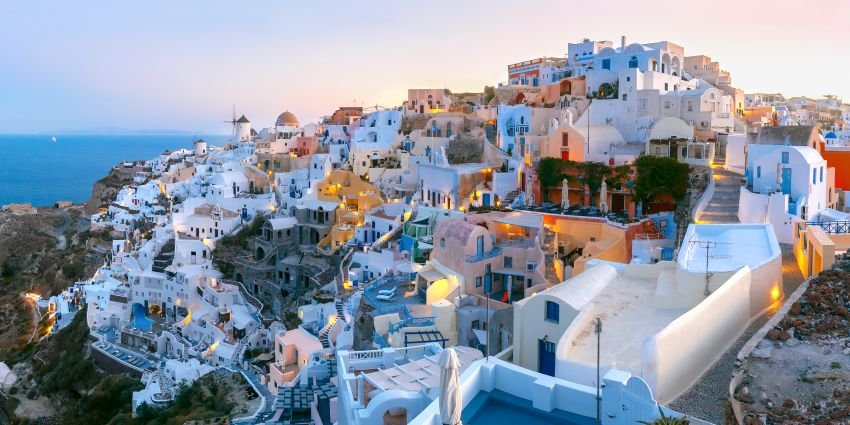
Sunday, August 3, 2025
The tourism sector of Greece, which is well-known for its stunning islands and historic sites, is presently going through significant change to bring about green hospitality. The industry has been compelled to reconsider its operations due to the strains of the energy and climate crises as well as the worldwide need for sustainable practices. Greece‘s hospitality sector, which includes both big hotel chains and smaller lodging establishments, is being urged to lessen its environmental impact as environmental concerns gain international attention. The focus is on investing in energy-efficient solutions and implementing green technologies, which not only solve environmental issues but also increase the sector’s economic resilience. With an emphasis on long-term sustainability rather than immediate profits, this change is a fundamental one.
Sustainability: The Key to Resilience in Greek Hospitality
Greek tourism is increasingly shifting from a mass tourism model to a more sustainable approach, focusing on providing high-quality experiences to a smaller, environmentally conscious group of travelers. The new tourism model emphasizes energy efficiency, infrastructure modernization, and the reduction of operational costs. By embracing sustainable practices, hotels can offer greener, more responsible services while attracting eco-conscious travelers who are more willing to pay a premium for environmentally friendly options. Moreover, this approach helps to protect local ecosystems and communities, making tourism more resilient to global crises and energy shocks.
Energy Efficiency: Significant Investments in Green Solutions
The shift towards sustainability has prompted significant investments in energy-efficient technologies. In 2024 alone, the Greek hotel sector invested more than 1 billion euros, with nearly 20% of this sum allocated to projects aimed at improving energy efficiency. These projects included the installation of solar panels, heat pumps, and smart energy systems. Such upgrades are essential for lowering energy consumption, reducing carbon footprints, and ultimately lowering operating costs for hotels. With global energy costs rising, these investments have proven to be a strategic move, offering long-term financial benefits in addition to environmental advantages.
The need for energy-efficient solutions is particularly critical as Greece faces challenges related to climate change. The Mediterranean region is experiencing rising temperatures and more frequent extreme weather events. In response to this, many hotels are increasingly adopting green technologies that help mitigate the impacts of climate change. Solar energy, for instance, provides a sustainable way for hotels to meet their electricity needs while reducing their reliance on fossil fuels. These energy solutions are not only good for the environment but also help hotels reduce costs, making them more competitive in the global market.
Technological Upgrades: A Game-Changer for Greek Hotels
In addition to investing in renewable energy sources, Greek hotels are also embracing technological innovations aimed at improving their overall sustainability. Modernization of hotel infrastructure plays a crucial role in making the industry more energy-efficient. For instance, the use of smart energy management systems allows hotels to monitor and optimize energy usage in real-time. This helps reduce energy waste and ensures that heating, cooling, and lighting systems are operating efficiently.
Better insulation and the installation of modern HVAC (Heating, Ventilation, and Air Conditioning) systems have also been identified as effective ways to reduce energy consumption. Studies show that energy use in hotels can be reduced by as much as 72% through these upgrades. By enhancing insulation and improving system efficiencies, hotels are able to lower their environmental impact while enhancing guest comfort.
The National and Kapodistrian University of Athens is playing a pivotal role in this green transition. The university’s Building Environmental Research Group is at the forefront of research on how hotels can integrate sustainable practices into their operations. This research is helping to shape the future of green hospitality in Greece, with a focus on energy-efficient solutions that can reduce costs and benefit both the environment and businesses.
Dr. Vasilis Ntouros from the university’s research group has highlighted the importance of such upgrades, noting that with the right technologies in place, hotels can significantly cut down on their energy use. His research suggests that energy consumption in hotels can be reduced from as high as 430 kilowatt-hours per square meter annually to under 120 kilowatt-hours simply by installing modern insulation, HVAC systems, and smart energy management.
Challenges in the Transition to Green Tourism
Despite the significant progress, there are still challenges in fully transitioning to a green tourism model. One of the major obstacles is the uneven adoption of sustainable practices across the industry. While large hotel chains are increasingly investing in green technologies, smaller hotels may face difficulties due to financial constraints or lack of knowledge about available solutions.
Currently, only 32% of Greek hotels systematically monitor their water usage, and just 25% have recycling programs in place. These statistics highlight the need for further action to ensure that sustainability becomes a widespread practice across the hospitality industry. The limited use of sustainable practices in some areas is concerning, particularly in popular island destinations where resources are scarce and the effects of climate change are most pronounced.
The Role of Government and Funding in Sustainability
To address these challenges, the Greek government, in partnership with European funding bodies, is offering a variety of financial support mechanisms to help hotels transition to more sustainable models. European Union and national funds are available to help hospitality businesses invest in energy-efficient technologies, reduce their carbon footprint, and improve waste management practices. These financial incentives are essential for encouraging hotels to adopt sustainable solutions and ensuring that the hospitality sector remains competitive in the global market.
In addition to financial support, the government is also providing educational resources and training to help hotel owners understand the importance of sustainability and how they can implement green technologies effectively. This support is crucial for creating a more sustainable tourism industry in Greece, and it helps to build the knowledge base required for long-term success.
New Hotel Classification System: Institutionalizing Sustainability
In a further step towards ensuring sustainability in Greek tourism, the Hellenic Chamber of Hotels, in collaboration with the Ministry of Tourism and the Technical Chamber of Greece, is developing a new hotel classification system based on environmental performance. This new classification will allow hotels to be rated according to their sustainability practices, encouraging more businesses to adopt green technologies and sustainable practices.
This new system will help raise awareness about the importance of sustainability in the hospitality industry and will create a framework for measuring and rewarding environmental performance. By offering incentives to hotels that meet high sustainability standards, the government is helping to foster a greener, more responsible tourism sector.
Conclusion: A Future of Sustainable Greek Tourism
The transition to sustainable tourism in Greece is not just an environmental necessity but also an economic opportunity. As the world faces the challenges posed by climate change and energy shortages, Greece’s hospitality sector is leading the way by embracing energy-efficient technologies, modernizing infrastructure, and adopting green practices. With continued investment, government support, and the pioneering research from institutions like the National and Kapodistrian University of Athens, Greece is well-positioned to become a global leader in sustainable tourism.
As the tourism industry continues to evolve, sustainability will play a central role in shaping Greece’s future as a travel destination. By fostering greener practices, the country will ensure that its rich cultural and natural heritage is preserved for future generations, while also providing travelers with the opportunity to experience Greece in a more environmentally responsible way.
-

 Brand Stories2 weeks ago
Brand Stories2 weeks agoBloom Hotels: A Modern Vision of Hospitality Redefining Travel
-

 Brand Stories1 week ago
Brand Stories1 week agoCheQin.ai sets a new standard for hotel booking with its AI capabilities: empowering travellers to bargain, choose the best, and book with clarity.
-

 Destinations & Things To Do2 weeks ago
Destinations & Things To Do2 weeks agoUntouched Destinations: Stunning Hidden Gems You Must Visit
-

 Destinations & Things To Do1 week ago
Destinations & Things To Do1 week agoThis Hidden Beach in India Glows at Night-But Only in One Secret Season
-

 AI in Travel2 weeks ago
AI in Travel2 weeks agoAI Travel Revolution: Must-Have Guide to the Best Experience
-

 Brand Stories4 weeks ago
Brand Stories4 weeks agoVoice AI Startup ElevenLabs Plans to Add Hubs Around the World
-

 Brand Stories3 weeks ago
Brand Stories3 weeks agoHow Elon Musk’s rogue Grok chatbot became a cautionary AI tale
-

 Asia Travel Pulse4 weeks ago
Asia Travel Pulse4 weeks agoLooking For Adventure In Asia? Here Are 7 Epic Destinations You Need To Experience At Least Once – Zee News
-

 AI in Travel4 weeks ago
AI in Travel4 weeks ago‘Will AI take my job?’ A trip to a Beijing fortune-telling bar to see what lies ahead | China
-

 Brand Stories4 weeks ago
Brand Stories4 weeks agoChatGPT — the last of the great romantics

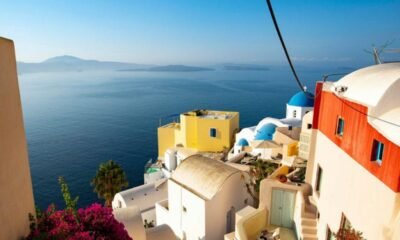

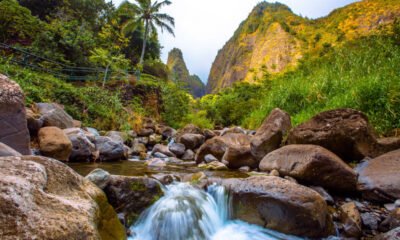







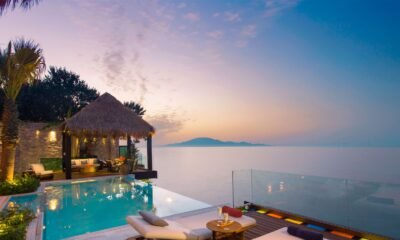

You must be logged in to post a comment Login